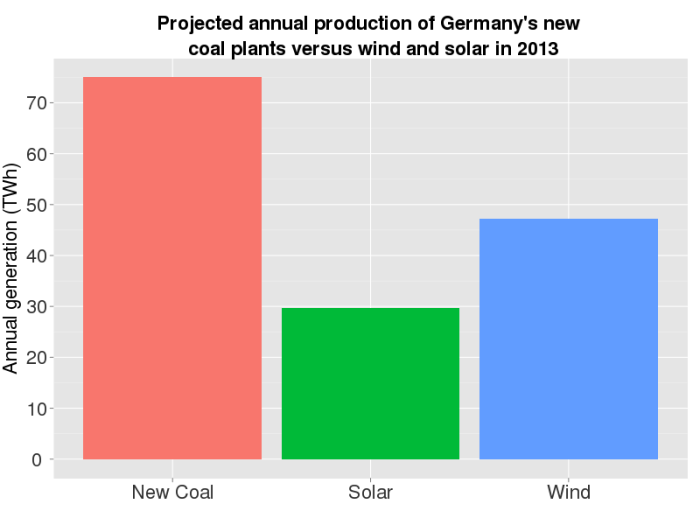The world's best approach to reduce CO2 is that of France with 80% nuclear, AND the lowest CO2 emissions of any industrialized nation in the world, AND among the lowest electricity costs, c/kWh, in Europe.
Much of German energy-intensive heavy industry will move to France, Poland, the Czech Republic, etc., which have low energy costs, to survive on the world market.
Normal 0 0 1 316 1806 15 3 2217 11.0 0 0 0
Rich, smug, Germany is finally beginning to realize its RE leadership will go nowhere without other, poorer nations following them. German household electric rates at 29.5 eurocent/kWh are the 2nd highest in Europe, after Denmark.
In fact, by charging ahead, as Germany has been doing with much hubris, they will harm their formidable economy relative to competitors. France, 80% nuclear, much lower CO2 emissions than Germany, is smiling, while at the same time professing to be "onboard" for RE.
It is useful to look at rich Germany regarding renewable energy costs of its ENERGIEWENDE.
For the years 2008 -2013, payments to RE generators were 9.0, 10.8, 13.2, 16.8, 21.1, 22.9 billion euros
For the same years, the RE energy costs were 0.1265, 0.1433, 0.1603, 0.1629, 0.1783, 0.1730 euro/kWh; note the rising trend.
Because of additional payments (subsidies) to impacted companies, the actual RE costs are higher, to result is 0.2047 euro/kWh for 2013, instead of 0.1730 euro/kWh.
For the years 2008 – 2013, the RE was sold by utilities for 4.3, 5.5, 3.8, 5.8, 5.1, 6.7 billion euros on the open market, or for 0.0604, 0.0730, 0.0462, 0.0562, 0.0431, 0.0506 euro/kWh, i.e., sold at about 1/4 of the cost.
http://www.germanenergyblog.de/wp-content/uploads/2014/01/BT-Drs_18_242_EEG_Data.png
People think the Germans are so smart, but selling an item at 1/4 of the cost is stupid, AND unsustainable.
I, and many others, have been writing about this for some time, and it seems to have finally sunk in at the highest level.
To limit the damage of RE follies to rich German’s heavy industries, traditional utilities, and other businesses, Germany’s government has decided to reduce all RE subsidies, effective at start of 2015, from a weighted average of 0.1730 euro/kWh in 2013, to a weighted average of 0.12 euro/kWh in 2015. This is not a trivial reduction, as it will significantly slow the build-out of RE systems all over Germany, including offshore wind turbine plants.
RE businesses, et al., howled, but there was a big sigh of relief from other households and businesses, as sanity appears to have prevailed after all.

 ). What about the Niger Delta, or the Chevron settlement with Ecuador? These can't be ignored, and any damage from rare earth extraction must be measured against these other problems.
). What about the Niger Delta, or the Chevron settlement with Ecuador? These can't be ignored, and any damage from rare earth extraction must be measured against these other problems.






